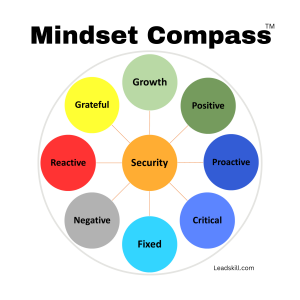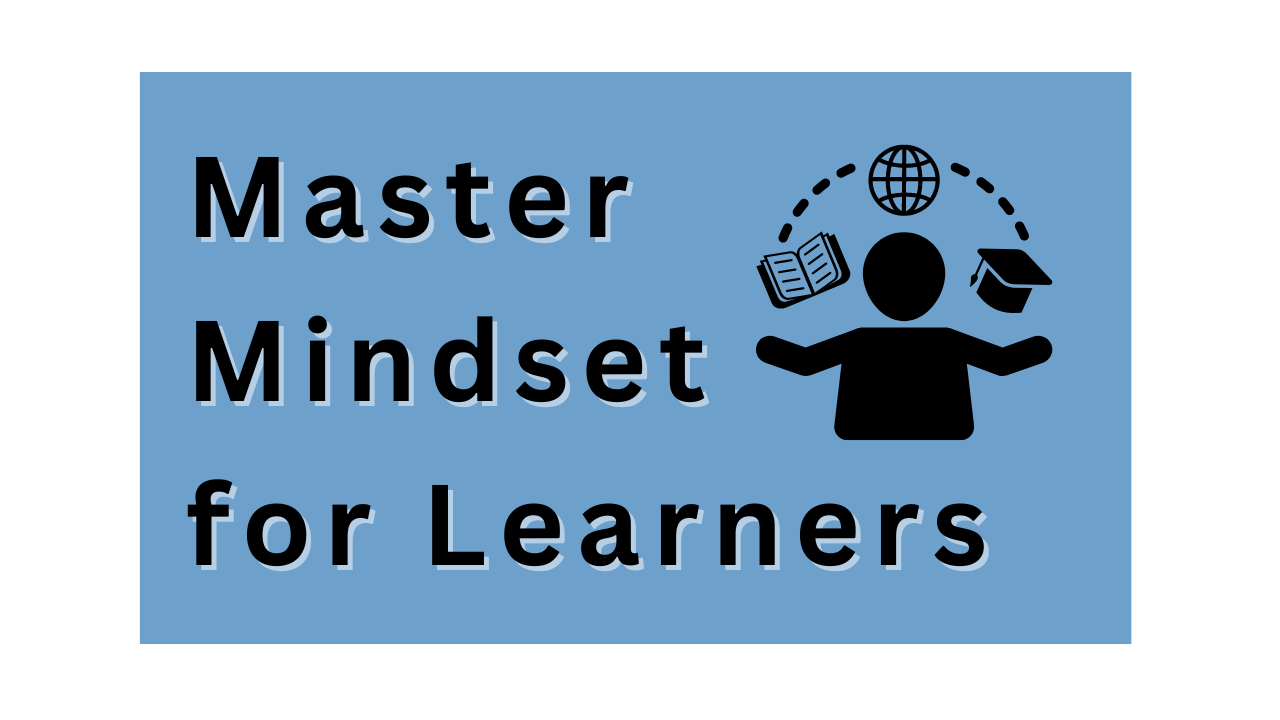Is there a master mindset for learners? Graduates often throw their hats in the air at their graduation ceremony, glad that their school is over. But is their learning really over? Lifelong learners keep on learning while others see learning as something they had to do while they were in school. The difference is in your mindset.
More Than What's in Your Mind
It’s definitely more than what you think, your opinion or what’s in your mind.
Mindset is what you believe or assume to be true, your attitude toward learning in this case.
Many Possible Mindsets that Learners Have
Here are a few that I’ve seen:
Discomfort “I don’t want to change my way of thinking”
Expectancy “I can’t wait to learn more!”
Resistance “I don’t like how this makes me feel”
Lazy “I don’t want to work at learning this”
Curious “I’m really interested to know how ____”
The Master Mindset of Learners: Growth
Carol Dweck has made a career out of studying mindsets since the 70’s. In 2006 she wrote a book called … “Mindset: the New Psychology of Success”. She found that some people see intelligence as something fixed and limited. When learning gets really difficult or they face failure, they think they have reached their limit and stop trying. This is the fixed mindset.
With a growth mindset, individuals think their talents and abilities can be developed through effort, good teaching, and persistence. They don’t think everyone is the same or that just anyone can be an Einstein, but they believe everyone can get (a little) smarter if they work at it.
Mindset Shows Up in Actions and Internal Speech
I imagine most people reading this would want to identify themselves with the growth mindset. The curious thing is that mindset is demonstrated more in action than in what we say we believe.
Example: you attend a training session at work and after the first day you get a barely passing grade on the end of day quiz. How do you feel?
If you say, “I feel dumb”, “Like an idiot” or “I’m in the wrong line of work”, you are showing a fixed mindset. It will stop you from trying again or giving it much more effort. If you thought “I need to try harder” or “This is tougher than I thought, I need to pay more attention tomorrow”, and you follow through on that, you’re showing a growth mindset.
The most important thing is whether you see yourself as a learner able to bounce back and learn more, or as an otherwise capable person who just isn’t cut out for this sort of thing. If your mindset is fixed you don’t see much point in trying, while the other sees growth potential and is ready to work at it. The mindset for learners is focused on growth and bouncing back from failure. A fixed mindset is locked in and less willing to change ideas, habits or expectations about learning.
There are more than just two mindsets. In fact, we have a mindset compass that helps you identify nine different mindsets and name your current attitude. It works much like a feelings wheel which helps you name your current emotion. You can check it out in our online store here.



